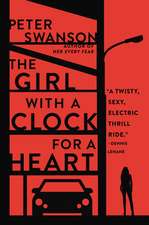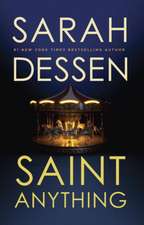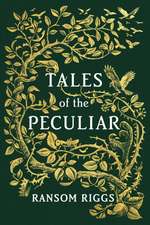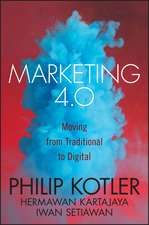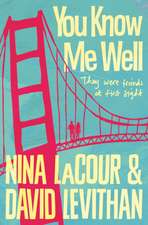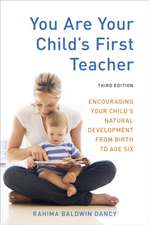The Paradox of Choice: Why More Is Less, Revised Edition
Autor Barry Schwartzen Limba Engleză Paperback – 16 mai 2016
Whether we're buying a pair of jeans, ordering a cup of coffee, selecting a long-distance carrier, applying to college, choosing a doctor, or setting up a 401(k), everyday decisions—both big and small—have become increasingly complex due to the overwhelming abundance of choice with which we are presented.
As Americans, we assume that more choice means better options and greater satisfaction. But beware of excessive choice: choice overload can make you question the decisions you make before you even make them, it can set you up for unrealistically high expectations, and it can make you blame yourself for any and all failures. In the long run, this can lead to decision-making paralysis, anxiety, and perpetual stress. And, in a culture that tells us that there is no excuse for falling short of perfection when your options are limitless, too much choice can lead to clinical depression.
In The Paradox of Choice, Barry Schwartz explains at what point choice—the hallmark of individual freedom and self-determination that we so cherish—becomes detrimental to our psychological and emotional well-being. In accessible, engaging, and anecdotal prose, Schwartz shows how the dramatic explosion in choice—from the mundane to the profound challenges of balancing career, family, and individual needs—has paradoxically become a problem instead of a solution. Schwartz also shows how our obsession with choice encourages us to seek that which makes us feel worse.
By synthesizing current research in the social sciences, Schwartz makes the counter intuitive case that eliminating choices can greatly reduce the stress, anxiety, and busyness of our lives. He offers eleven practical steps on how to limit choices to a manageable number, have the discipline to focus on those that are important and ignore the rest, and ultimately derive greater satisfaction from the choices you have to make.
| Toate formatele și edițiile | Preț | Express |
|---|---|---|
| Paperback (2) | 75.80 lei 3-5 săpt. | +9.33 lei 6-12 zile |
| HarperCollins Publishers – 16 mai 2016 | 75.80 lei 3-5 săpt. | +9.33 lei 6-12 zile |
| Harper Collins Publishers – 17 ian 2005 | 92.22 lei 3-5 săpt. |
Preț: 75.80 lei
Nou
14.50€ • 15.14$ • 12.00£
Carte disponibilă
Livrare economică 14-28 martie
Livrare express 27 februarie-05 martie pentru 19.32 lei
Specificații
ISBN-10: 0062449923
Pagini: 304
Dimensiuni: 135 x 203 x 17 mm
Greutate: 0.23 kg
Ediția:Revised
Editura: HarperCollins Publishers
Colecția Ecco
Textul de pe ultima copertă
“Absorbing, witty, and persuasive.”—BusinessWeek Top 10 Business Books of 2004
“Brilliant. . . . The case Schwartz makes for a correlation between our emotional state and what he calls the ‘tyranny of choice’ is compelling, the implications disturbing. . . . An insightful book.”—Christian Science Monitor
“A revolutionary and beautifully reasoned book about the promiscuous amount of choice that renders the consumer helpless. A must-read.”—Martin Seligman, author of Authentic Happiness
Whether we’re buying a pair of jeans, ordering coffee, selecting a wireless carrier, applying to college, choosing a doctor, or setting up a 401(k), everyday decisions—both big and small—have become increasingly complex due to the over-whelming abundance of choice. For Americans, choice is the hallmark of individual freedom and self-determination. But having too much choice can actually be detrimental: choice overload can make you question your decisions before you make them, set up unrealistically high expectations, and lead to self-blame for any failure. The result is decision-making paralysis, anxiety, and perpetual stress, and even clinical depression.
In The Paradox of Choice, Barry Schwartz shows how the dramatic explosion in choice—from the mundane to the profound challenges of balancing career, family, and individual needs—has led us to seek that which makes us feel worse. Synthesizing current research, Schwartz makes the counterintuitive case that reducing choices can greatly reduce stress, anxiety, and the frenzy of daily life, and offers eleven practical steps to help you limit choices to a manageable number, focus on the important ones, and ultimately derive greater satisfaction from the choices you have to make.
Recenzii
Descriere
In the spirit of Alvin Toffler’s Future Shock, a social critique of our obsession with choice, and how it contributes to anxiety, dissatisfaction and regret. This paperback includes a new preface from the author.
Whether we're buying a pair of jeans, ordering a cup of coffee, selecting a long-distance carrier, applying to college, choosing a doctor, or setting up a 401(k), everyday decisions—both big and small—have become increasingly complex due to the overwhelming abundance of choice with which we are presented.
As Americans, we assume that more choice means better options and greater satisfaction. But beware of excessive choice: choice overload can make you question the decisions you make before you even make them, it can set you up for unrealistically high expectations, and it can make you blame yourself for any and all failures. In the long run, this can lead to decision-making paralysis, anxiety, and perpetual stress. And, in a culture that tells us that there is no excuse for falling short of perfection when your options are limitless, too much choice can lead to clinical depression.
In The Paradox of Choice, Barry Schwartz explains at what point choice—the hallmark of individual freedom and self-determination that we so cherish—becomes detrimental to our psychological and emotional well-being. In accessible, engaging, and anecdotal prose, Schwartz shows how the dramatic explosion in choice—from the mundane to the profound challenges of balancing career, family, and individual needs—has paradoxically become a problem instead of a solution. Schwartz also shows how our obsession with choice encourages us to seek that which makes us feel worse.
By synthesizing current research in the social sciences, Schwartz makes the counter intuitive case that eliminating choices can greatly reduce the stress, anxiety, and busyness of our lives. He offers eleven practical steps on how to limit choices to a manageable number, have the discipline to focus on those that are important and ignore the rest, and ultimately derive greater satisfaction from the choices you have to make.
Notă biografică
Barry Schwartz is the Dorwin Cartwright Professor of Social Theory and Social Action at Swarthmore College. He is the author of several books, including Practical Wisdom: The Right Way to Do the Right Thing, with Kenneth Sharpe, and Why We Work. His articles have appeared in many of the leading journals in his field, including American Psychologist.


